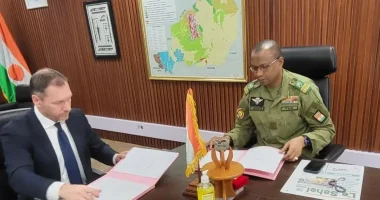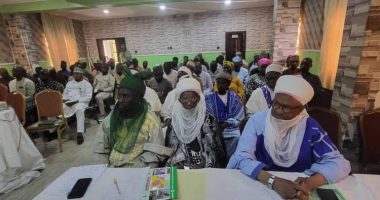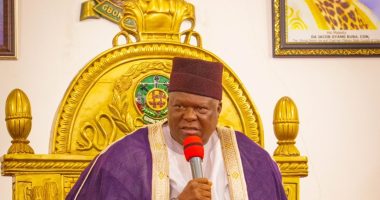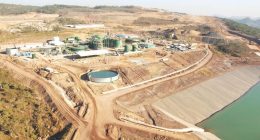Nigeria’s mining sector, once a cornerstone of the nation’s economy, is making strides toward a revival. However, despite its vast potential, challenges persist, threatening to derail its progress. Aiming to address these obstacles, the Nigerian government has implemented significant initiatives, including a security overhaul and international partnerships.

Historically, the mining industry contributed 4–5% of Nigeria’s GDP in the 1960s and 1970s. However, the sector faced neglect following the , dropping to a mere 0.17% GDP contribution between 2018 and 2022. While interest in mining has grown due to rising demand for critical minerals and technological advancements, the sector’s average GDP contribution of 0.15% still falls short of its potential.
In a significant move, Nigeria signed a Memorandum of Understanding (MOU) with France to address issues plaguing the mining sector. This partnership focuses on remediating over 2,000 abandoned mining pits, promoting sustainable mining practices, and securing critical minerals like copper, lithium, and cobalt. The agreement also includes collaboration on research and training, fostering Franco-Nigerian student exchanges to enhance skills and knowledge.
Illegal mining remains a critical challenge. An estimated 500 illegal mines operate across Nigeria, with over two million people involved in unregulated activities. To counter this, the government introduced a Mining Marshal Corps, a specialised force within the Nigeria Security and Civil Defence Corps (NSCDC). Tasked with eliminating illegal mining, the corps combines existing expertise with advanced training to enhance enforcement.
While these efforts have led to arrests and regulatory enforcement, challenges persist. Remote mining sites, resistance from local communities, and well-organised illegal networks hinder the corps’ effectiveness. Experts advocate for integrating advanced surveillance technologies like drones and satellite imaging to bolster enforcement.
To address community-related challenges, the government launched guidelines for crafting Community Development Agreements (CDAs). These agreements aim to ensure that host communities benefit socially and economically from mining activities. Such frameworks are vital to fostering peaceful relations and sustainable development.
Insecurity, exacerbated by illegal mining, poses another hurdle. The sector has attracted foreign nationals and non-state actors, fueling violence and displacement in some regions. Security experts stress the importance of involving traditional institutions and local stakeholders to curb these threats effectively.
Toward a Sustainable Future
The Nigerian government’s ambitious roadmap aims to make the mining sector a major revenue generator, contributing over 50% to GDP in the long term. While this vision is commendable, achieving it requires addressing systemic issues such as poverty, corruption, and inadequate funding.
The MOU with France and the deployment of the Mining Marshal Corps are steps in the right direction. However, industry experts, like geologist Muhammad Ali, caution against over-reliance on enforcement. Instead, they advocate for a nuanced approach, combining intelligence gathering, stakeholder collaboration, and advanced technology to combat illegal mining effectively.
Nigeria’s mining sector holds immense promise, but its challenges are multifaceted. Through international collaboration, targeted reforms, and community engagement, the country can unlock the full potential of its solid mineral resources, driving economic growth and ensuring sustainable development.













